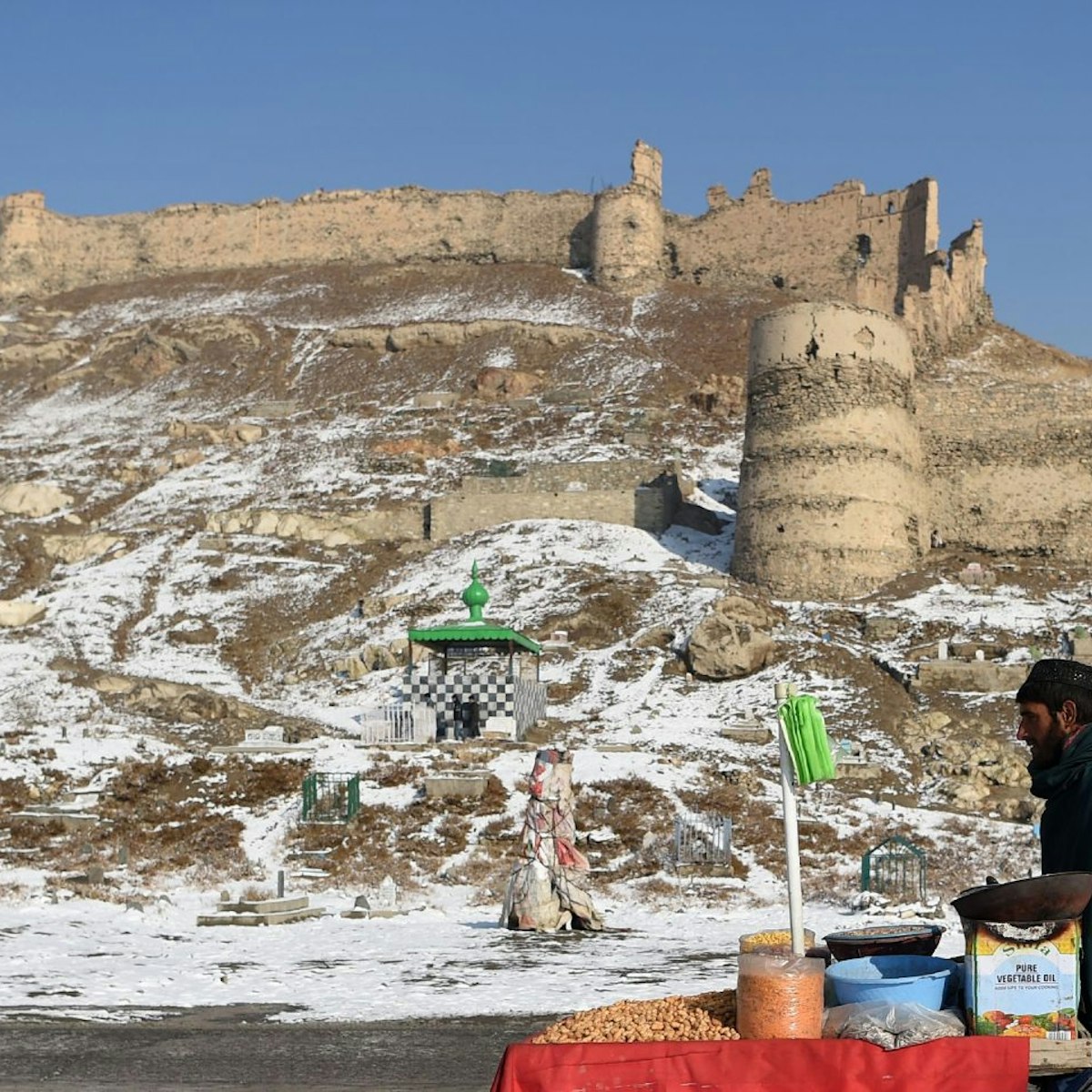This cemetery was built in 1879 by the British army for the dead of the Second Anglo-Afghan War. The cemetery contains around 150 graves. Most are from members of Kabul’s international community from before the war. Only a few of the original British Army headstones remain, now mounted in the south wall. They have been joined by newer memorial stones added by the British, Canadian, German and Italian ISAF contingents. The cemetery’s most famous resident is Aurel Stein, the acclaimed Silk Road archaeologist of the early 20th century. Stein spent much of his career obsessed by Alexander’s campaigns in the east, but his British citizenship meant that the Afghan authorities always refused him permission to dig in the country. In 1943 he got the go-ahead at the age of 82, only to catch the flu and die a few days after arriving in Kabul. His grave is marked with a large cross and frequently a wreath. More recently, the cemetery saw the burial of the French aid worker Bettina Goislard, murdered in Ghazni in 2003. The cemetery has been maintained since the 1980s by Rahimullah, supported by a small stipend from the British Embassy. His story of meeting a disapproving Mullah Omar (the Taliban had a guesthouse next door) is worth the hearing, and always popular with journalists.
Lonely Planet's must-see attractions

2.79 MILES
The old seat of royal power, a fortress has stood on the site of the Bala Hissar since the 5th century AD, and quite possibly before. It sits at the foot…

2.9 MILES
Laid out by the Mughal ruler Babur in the early 16th century, and the site of his tomb, these gardens are the loveliest spot in Kabul. At 11 hectares,…

2.53 MILES
The zoo is a popular place for Kabulis in need of recreation. Western animal lovers might find it more than a little depressing. Visitors are greeted…

1.65 MILES
This private museum in the same grounds as the National Gallery is something of a curiosity. It was set up in 2004 by Ahmad Shah Sultani, a gold trader…

2.1 MILES
This is a museum that only a country like Afghanistan could host. Run by the Organisation for Mine clearance and Afghan Rehabilitation (OMAR), it acts as…

2.84 MILES
King Nadir Shah was assassinated in 1933, the time-honoured way that most Afghan leaders meet their fate. His monumental tomb sits overlooking east Kabul…

1.97 MILES
Entering Kabul’s bird market is like stepping back in time a hundred years, to a corner of the city untouched by war or modernisation. Also known as the…

1.3 MILES
Holding over 15,000 documents, the National Archive is housed in a palace built at the end of the 19th century by Abdur Rahman Khan for his son. …
Nearby Kabul attractions
1.3 MILES
Holding over 15,000 documents, the National Archive is housed in a palace built at the end of the 19th century by Abdur Rahman Khan for his son. …
2. Mausoleum of Abdur Rahman Khan
1.46 MILES
The tomb of the 'Iron Amir' sits in Zarnegar Park. Originally a palace, the building has a bulbous red dome atop a whitewashed drum, and fussy decorative…
1.65 MILES
The National Gallery contains a mix of historic pictures and paintings by modern Afghan artists. Like Kabul’s other cultural institutions, it didn’t…
1.65 MILES
This private museum in the same grounds as the National Gallery is something of a curiosity. It was set up in 2004 by Ahmad Shah Sultani, a gold trader…
1.75 MILES
Timur Shah was the first to make Kabul the capital of a unified kingdom. He died in 1793, but it was another 23 years before his mausoleum was built,…
6. Shah-e Doh Shamshira Mosque
1.84 MILES
Called the 'Mosque of the King of Two Swords', the Shah-e Doh Shamshira Mosque on Kabul river must be one of the most unusual in Islam. Built in the 1920s…
1.97 MILES
Entering Kabul’s bird market is like stepping back in time a hundred years, to a corner of the city untouched by war or modernisation. Also known as the…
2.02 MILES
Kabul’s main stadium hosts football matches most Friday afternoons. In the winter months and at Nauroz there are occasional buzkashi matches.



